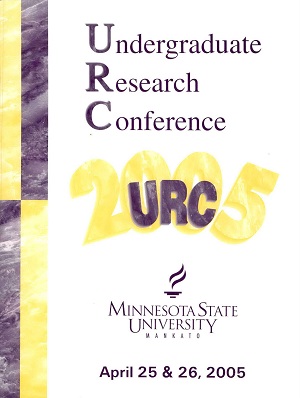Wittgenstein, Kierkegaard and the Unspeakable
Location
CSU 285
Start Date
25-4-2005 3:15 PM
End Date
25-4-2005 5:30 PM
Student's Major
Philosophy
Student's College
Arts and Humanities
Mentor's Name
Dick Liebenforfer
Mentor's Department
Philosophy
Mentor's College
Arts and Humanities
Description
Soren Kierkegaard and Ludwig Wittgenstein have long been thought of as philosophers with little, if anything in common. There are but a handful of contemporary philosophers who have provided links between works by Kierkegaard and works by Wittgenstein; however no one has, at least explicitly, provided the following link I intend to show in this paper. I will show Kierkegaard's Fear and Trembling and Wittgenstein's Tractatus Logico Philosophicus have a remarkably common theme in each. The theme is the ability of one to communicate, or understand the unspeakable, that which remains beyond the limits of language. Both Philosophers have a unique approach to arriving at this conclusion, Kierkegaard through religion and Wittgenstein through logic, but each reaches a point in which a person must remain silent.
Wittgenstein, Kierkegaard and the Unspeakable
CSU 285
Soren Kierkegaard and Ludwig Wittgenstein have long been thought of as philosophers with little, if anything in common. There are but a handful of contemporary philosophers who have provided links between works by Kierkegaard and works by Wittgenstein; however no one has, at least explicitly, provided the following link I intend to show in this paper. I will show Kierkegaard's Fear and Trembling and Wittgenstein's Tractatus Logico Philosophicus have a remarkably common theme in each. The theme is the ability of one to communicate, or understand the unspeakable, that which remains beyond the limits of language. Both Philosophers have a unique approach to arriving at this conclusion, Kierkegaard through religion and Wittgenstein through logic, but each reaches a point in which a person must remain silent.




